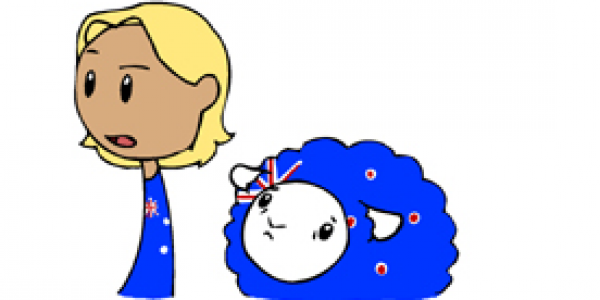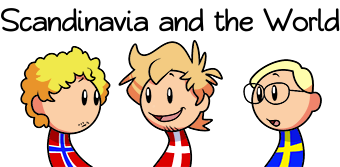Community made Fact Card:

There are three sheep per person in Australia. New Zealand has seven times as many sheep as people. Both pale in comparison to the Falkland Islands' amazing 167 sheep per person!
7 years ago #9811118
4
0
The best part of the New Zealand Citizenship ceremony for new immigrants is at the end when the government presents you with your 7 sheep (or, in more urban centres, just a certificate of ownership). Of course, nowadays (at least in the big cities) people no longer keep their sheep in their own gardens, as it is no longer common to have the 1/4 acre section. Those of us who live in Auckland generally sublet our sheep to the large government collective farms in the South Island, and simply have the certificate of Sheep Ownership on the wall (along with photos of the sheep for those people who are particularly keen).
Many New Zealanders will take short breaks to go and visit their small flock (or, colloquially, 'batch' ) of sheep. Therefore, you may hear a New Zealander saying that they plan to spend a long weekend visting the "family batch" - this is when they are going to visit their sheep. They may come back with bits of wool as mementos.
Many New Zealanders will take short breaks to go and visit their small flock (or, colloquially, 'batch' ) of sheep. Therefore, you may hear a New Zealander saying that they plan to spend a long weekend visting the "family batch" - this is when they are going to visit their sheep. They may come back with bits of wool as mementos.
7 years ago #9812804
3
0
Iceland used to have a large number of sheep per capita, how is it now? I see they are not even mentioned.
7 years ago #9809227
2
0
Yes, we really do have more sheep than people here in australia.
‘Australia was built off the sheeps back’. In the Case of SATW that sheep was newzealand, and australia was probably on a surfboard.
‘Australia was built off the sheeps back’. In the Case of SATW that sheep was newzealand, and australia was probably on a surfboard.
8 years ago #9761061
1
0
Some time ago, I've heard that Australian scientists try to reduce the greenhouse-gas-emition of their sheep by genetic-engeneering of the sheeps microbiome...
Somebody even calculated, that the sheep in 'Down-Under' contribute more to global warming than all cars in Australia...?
(Fact or urban-legend...?)
Somebody even calculated, that the sheep in 'Down-Under' contribute more to global warming than all cars in Australia...?
(Fact or urban-legend...?)
8 years ago #9737151
1
0
of course not as many people live on Falkland than on New Zealand, or Australia, but this is still true :> (^ω^)
8 years ago #9712932
1
0
Wales: 4 sheeps per capita. I guess Wales should be attentive to Falklanders so that any one doesn't break his relationship with New Zealand ;)
10 years ago #9482892
1
0
Moe !!
I was wondering the other day, what they might grow in there, since it is a small island and middle of the nowhere. Now i know. Sheeps.
I was wondering the other day, what they might grow in there, since it is a small island and middle of the nowhere. Now i know. Sheeps.
10 years ago #9472387
1
0
Fact check:
New Zealand: 6, according to the government: http://www.stats.govt.nz/browse_for_stats/population/mythbusters/3million-people-60million-sheep.aspx But at the peak it was 22! Australia is now under 3 per capita. Falkland sheep estimates seem to vary by quite a bit - if you take some of the higher bounds, it could be over 350 per capita!
New Zealand: 6, according to the government: http://www.stats.govt.nz/browse_for_stats/population/mythbusters/3million-people-60million-sheep.aspx But at the peak it was 22! Australia is now under 3 per capita. Falkland sheep estimates seem to vary by quite a bit - if you take some of the higher bounds, it could be over 350 per capita!
Add comment: Please Sign in or create an accout to comment.






















40